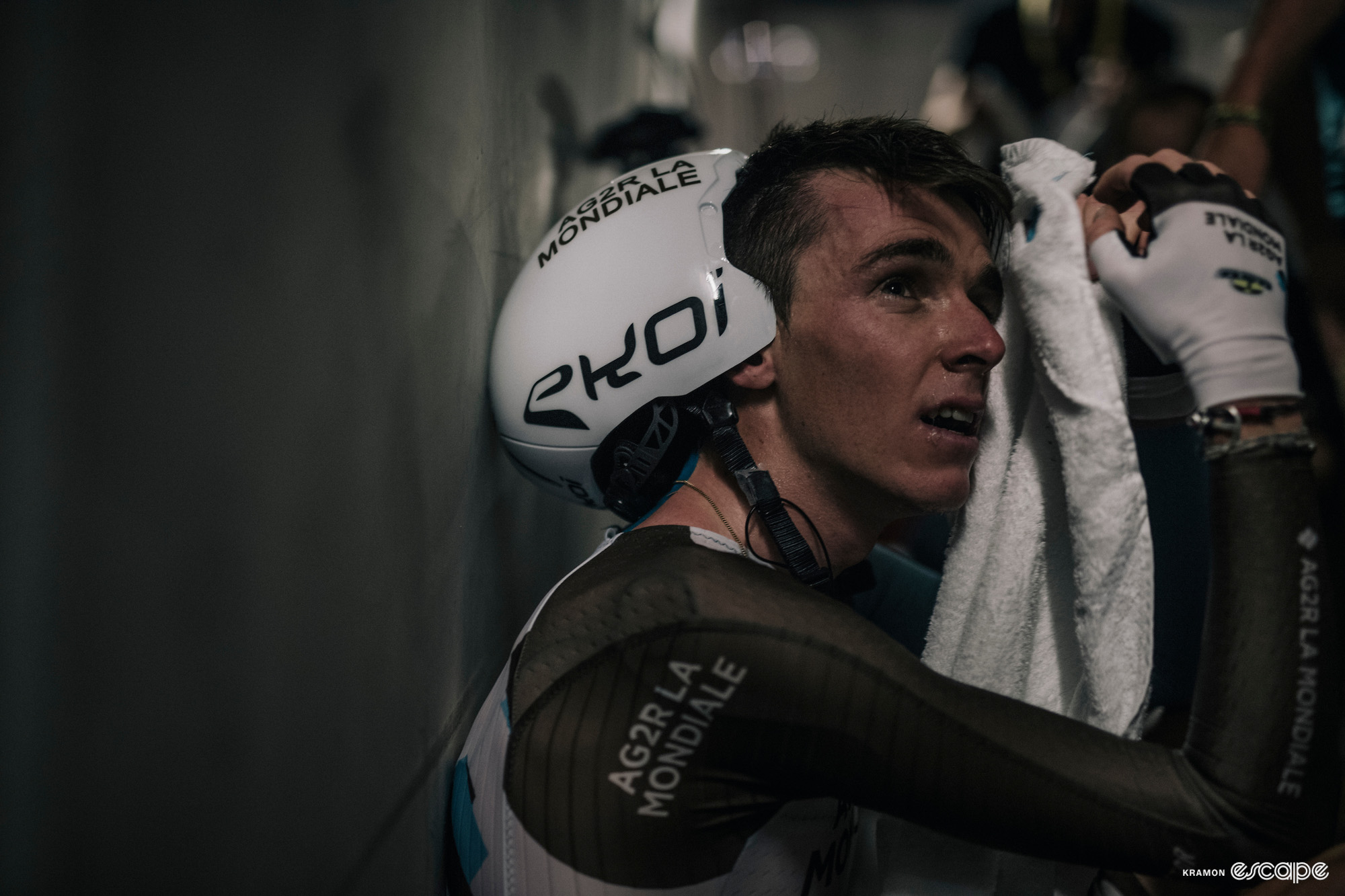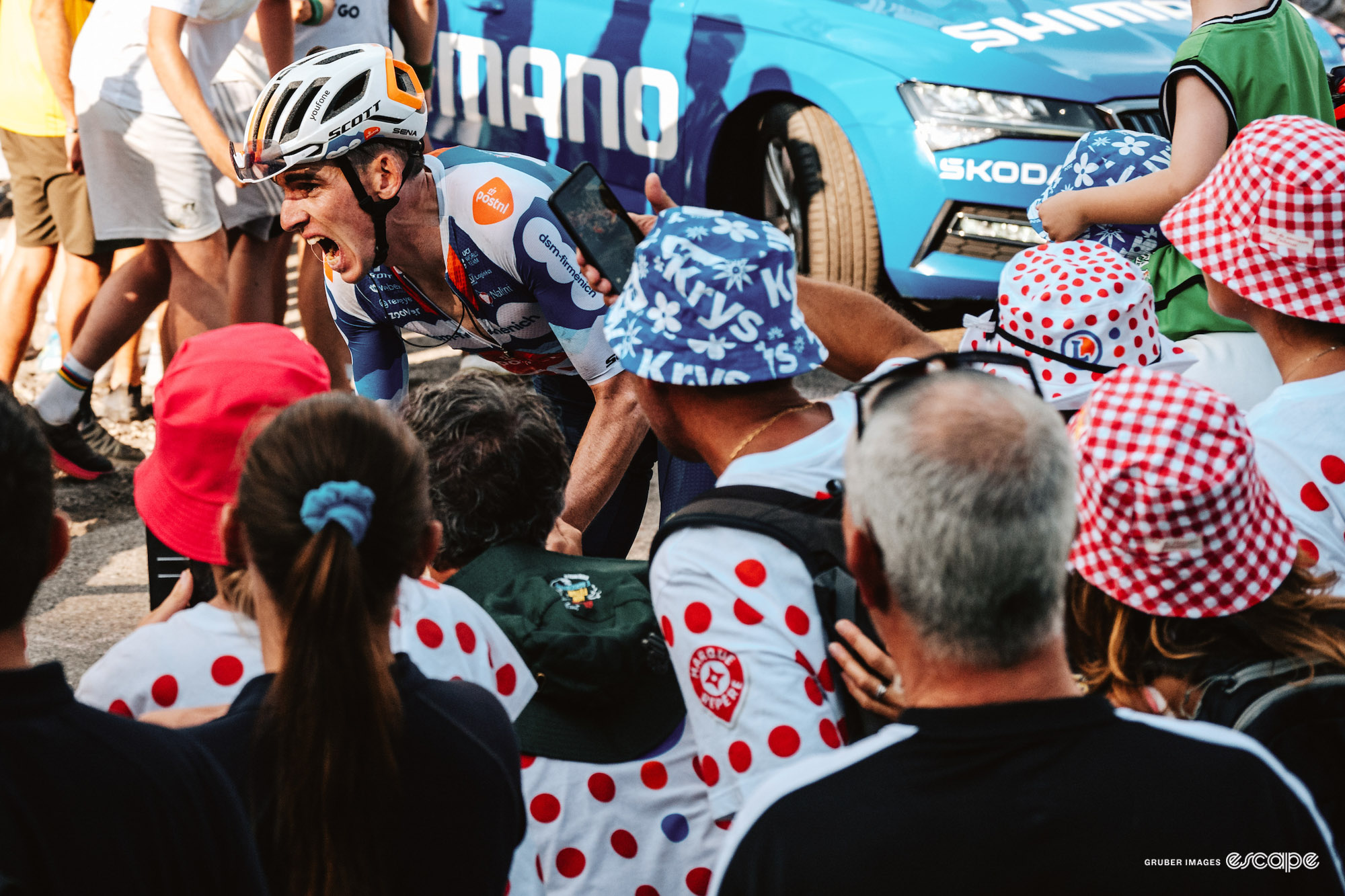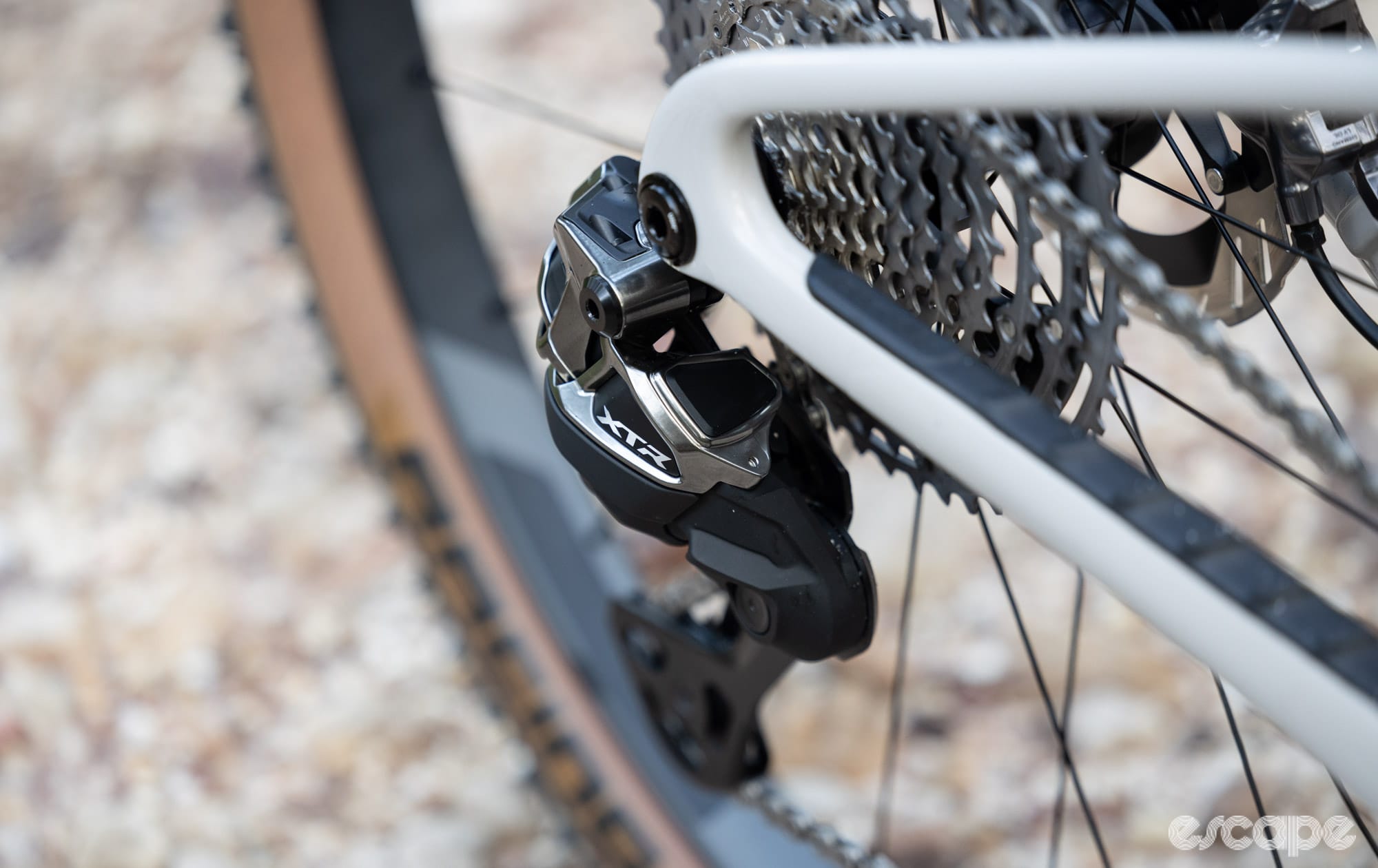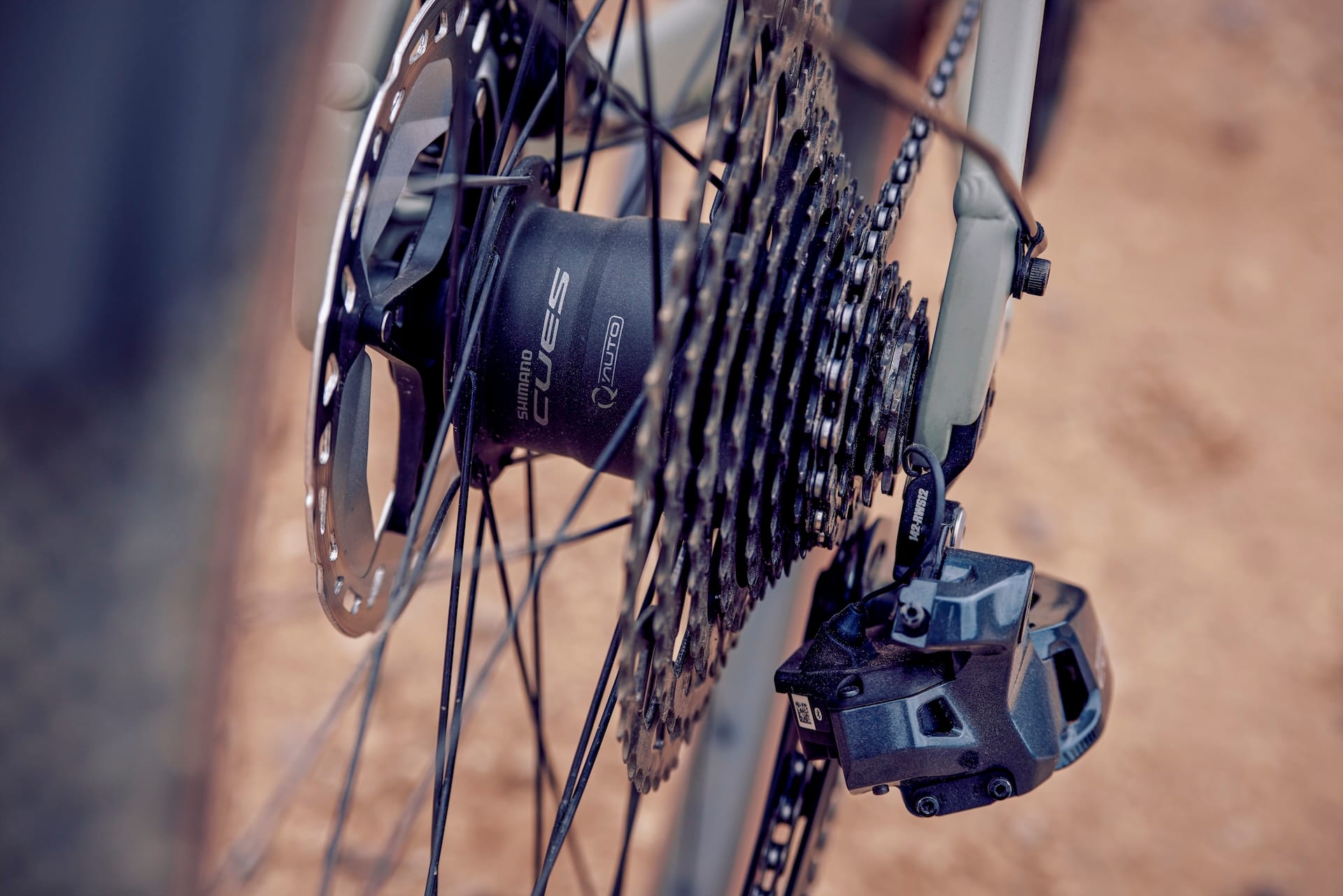At the top of the final Tour climb of a thirteen-year career, the end of his eleventh and final Tour de France, Romain Bardet wrapped a towel around his neck and turned toward a bristle of microphones. “Can you put your emotions into words?,” a reporter asks. Bardet speaks quietly, stopping and starting. Like he’s thought about it, about the words he would use, but the actual delivery is proving more difficult than he imagined.
“Yeah, it's hard,” he says. “It’s my job, you know, it means something to me. Since this morning … everything is coming back.”
Bardet’s final Tour opened with a dream. It was oppressively hot, humid, Mark Cavendish puking out the back of the grupetto, when Bardet bridged to a breakaway on stage 1, then rode right through it. He pulled his DSM teammate Frank van den Broek along with him and the two swapped turns on the long, fast descent down to Rimini, Van den Broek in his first Tour, Bardet in his last. The young Dutchman buried himself for his leader. In the finish line photos the two sit sharp in the foreground, pointing at each other in disbelief as a blurred peloton charges toward them. Just five seconds in it. Bardet has finished as high as second overall at the Tour de France before, but he’d never worn yellow until that afternoon in Italy.
“It's addictive. We hurt ourselves,” he says, pausing to find the right words. “We get kicked every day, but we bounce back.”
That day in Rimini was one of a few fleeting moments where Bardet’s talent has been allowed, through luck and patience, to bubble up through the Tour de France. He is not Tadej Pogačar, he knows, nor was he Chris Froome, to whom he lost the Tour in 2016. He has never been dominant, always been close, sitting on the edge of the superhumans of two different eras. Always chasing. A general classification rider with deep weaknesses in the time trial; a climber transcendent on this day but inconsistent across whole races and seasons. He was never going to win the Tour, if we’re honest, but he made France wonder, albeit briefly, if he could.
“My wife told me, ‘You’ll think about your son, you’ll think about us, you’ll be able to enjoy one last time and give everything.’ She knew it had been weighing on me at the Tour every year for the last ten years,” he says.
In 2016, was as close to a true Tour de France contender as any Frenchman since Hinault, and then followed it up with another podium in 2017, holding off Mikel Landa by a single second.

There is a photo from Bardet’s podium defense in 2017 that sticks with me. It’s from Kristof Ramon, and the context of the image is as much a part of its staying power in my mind as the image itself.
He started the day in second overall, only 23 seconds off Chris Froome. Six seconds behind him sat Rigoberto Uran. The podium all within 29 seconds, with only one real stage to go. It would all come down to a flat, 22.5 km city circuit in Marseille. We all knew what Froome and Uran could do in time trials, and sandwiched between them sat Bardet, lanky and unaerodynamic, who admitted he hadn’t trained much on the time trial bike that year. It seemed sure he would end the day in third. Landa sat more than a minute behind, surely enough of a gap in a time trial that would take less than thirty minutes.
From the first check, the gap was already worrying. Bardet looked uncomfortable in the position; by the seven km mark, Froome and Uran were out of reach. Landa closed in. The director in the AG2R car updated Bardet on the gap, shrinking by the kilometer.
He crossed the line exhausted, looping around in the stadium tunnel with slumped shoulders, and nearly fell off his bike. He collapsed against the wall, pale as a ghost, pulling his helmet off and leaning against a dirty wall, grimacing. Kristof took the photo. And somebody told him: you kept it by a second.
“Thirteen years of my life,” he says. “It’s so hard. The story of my career, fighting to be among the best. I never gave up.”
On Saturday, he hit out in a Tour de France breakaway one last time. The gap was never huge, and Quickstep's intentions made a bookending Tour stage win impossible. He rode on anyway, climbing the Col du Couillole at his limit. For a brief moment, as Tadej Pogačar and Jonas Vingegaard came by, he lifted his pace to match. He came unstuck moments later.
"I was struggling against the voice in my head and the pain in my legs telling me to stop," he says. "I had some good moments. I was lucky enough to be caught by the best in this Tour, like trains passing by, and my story ending."
Did we do a good job with this story?




